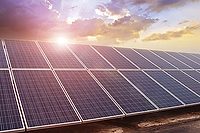Australia a Key Player in Residential Solar Market

The U.S. continues to lag behind global photovoltaic (PV) leaders Germany and Australia in prices for residential installations, according to “Lessons from Australia: Reducing Solar PV Costs Through Installation Labor Efficiency,” a recent report from Rocky Mountain Institute (RMI) and Georgia Tech Research Institute (GTRI). With solar module costs relatively the same everywhere, total soft costs—including customer acquisition, installation labor, permitting, inspection and interconnection—now comprise approximately 70% of the total installed price for a U.S. residential PV system, making soft costs a prime opportunity for drastic cost reductions.
After examining Germany’s installation labor practices and releasing the results in a December 2013 study, RMI and GTRI traveled to Australia to analyze the varying PV installation processes there. Each provided an opportunity to draw a comparison between installation costs and methods; when combined with the U.S., the three countries comprise more than 39% of total global distributed PV generation.
In particular, Australia has emerged as a dominant player in the world residential solar market, with more than 10% of households having a rooftop solar system with costs of $2.56/W, closely rivaling Germany’s $2.21/W (compared with $4.93/W in the U.S.). Without using advanced technologies or processes, Australian installers can install solar systems in less than two-thirds the time per kW than U.S. installers.
“RMI’s work in Australia diversifies our understanding of how the cost of installed solar PV systems can be competitively reduced,” said Karen Crofton, a principal at RMI. “The observations gleaned from Australia will help U.S. solar providers streamline their installation processes—starting today. If it can be done in Australia and Germany, there is no reason it cannot be done in the U.S.”
For more information, visit www.rmi.org.
Looking for a reprint of this article?
From high-res PDFs to custom plaques, order your copy today!




